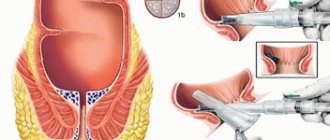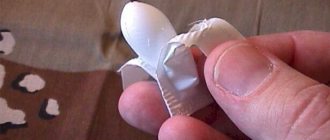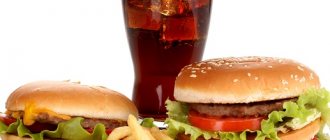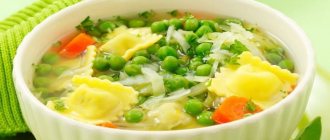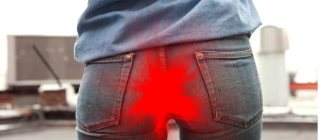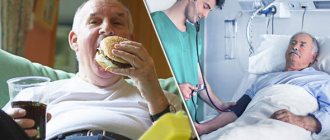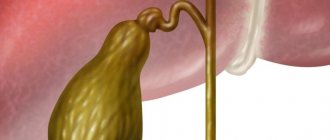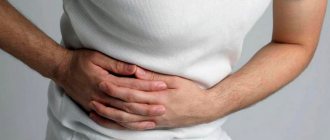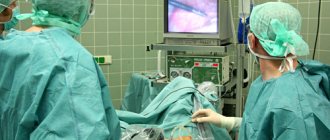Surgery to remove hemorrhoids is traumatic for the body. It is considered physical and psychological stress for a person. To make recovery go faster, include safe foods in your food and eliminate the use of harmful substances.
The diet after hemorrhoid surgery is balanced in terms of the ratio of proteins, fats, and carbohydrates. A lack of carbohydrates in food will lead to a decrease in energy reserves in the body. A lack of proteins will weaken the immune system, disrupt metabolism, worsen the condition of the skin, and increase hair loss.
Normally, the indicated substances are necessary for tissue restoration and healing of wounds after surgery.
The importance of dietary nutrition in the postoperative period
After removal of hemorrhoids, an open wound surface (Milligan-Morgan method) or sutures (Ferguson method) remain. In the first days after surgery, it is very important to prevent damage to them from feces. It takes time to allow surgical wounds to heal.
The quality of bowel movement depends on the quality of food, quantity and frequency of its intake. Nutrition after removal of hemorrhoids should help ensure that the stool is regular and has a soft consistency (but not runny!). Constipation and diarrhea are the patient’s worst enemies. The former can disrupt the integrity of the sutures, damage wounds, and provoke bleeding. Loose stools will cause irritation, inflammation and possible bleeding.
However, the menu must be complete and the diet must be balanced. After hemorrhoidectomy, it is important for the body to quickly regain strength and replenish lost energy. The diet (especially after hemorrhoid surgery) should provide the body with the normal intake of vitamins, proteins, micro- and macroelements. At the same time, it aims to reduce the load on the intestines.
You can find out how surgery to remove hemorrhoids is performed using the Milligan-Morgan or Ferguson method by reading the material from our expert.
A qualified proctologist talks about the indications and contraindications for the removal of hemorrhoids.
You should also be sure to familiarize yourself with the peculiarities of hemorrhoids after surgery, the principles of the recovery period and medical advice.
Can you or shouldn't drink alcohol after surgery?
Alcohol is one of the factors that provoke hemorrhoids, therefore it is prohibited after removal of the nodes. Alcohol damages blood vessels, disrupts their strength and elasticity, dehydrating the body.
The capillaries become fragile, the process of microcirculation in the anorectal area is disrupted, stagnation begins in the veins, the endothelium hyperplasias, which creates conditions for the formation of more and more new nodes. In other words, alcohol is the first provocateur of relapse of hemorrhoidal disease.
In addition, alcohol is incompatible with many medications, so when prescribing any therapy during the rehabilitation period after surgery, its effectiveness will be reduced to zero.
Basic principles of the diet
The postoperative period can be shortened and tissue healing accelerated if you follow a few simple dietary rules.
- Small meals (5-6 meals a day should become the norm).
- Moderation of portions (portions should not be large, it is advisable to reduce the usual amount of food by half).
- Complete rejection of aggressive foods (salty, spicy, smoked, fatty – avoid!).
- Complete abstinence from alcoholic beverages.
- The menu has a predominance of first courses, pureed, steamed and stewed dishes for the second course.
Cooking technology is also very important. You will have to give up fried, grilled foods, raw vegetables and fruits. Food should be pureed, chopped, without coarse fibers.
Baking in the oven, steaming, boiling or stewing - only these cooking methods are recommended for the recovery period.
All these rules and principles must be taken into account when drawing up a menu in the first one and a half to two months after surgery. The development of hemorrhoids or its recurrence can be avoided by adhering to these principles in the menu throughout your life.
Nuances of nutrition on the first day
Nutrition in the first 24 hours after surgery is completely excluded. After excision of hemorrhoids, hours of rest are needed for primary wound healing. A pause in nutrition for two days (the preoperative day is also considered) prevents the possibility of bowel movements.
It is important to carefully observe the drinking regime during the first day. During this time, you need to drink at least 2 liters of boiled or mineral still water. Every hour you need to drink at least 60-90 ml of liquid to avoid dehydration.
On the second day, doctors usually recommend eating a few spoons of liquid pureed oatmeal porridge for the first meal, and pureed lean soup for lunch. It is allowed and recommended to drink green tea, dried fruit compote, rosehip or chamomile decoction. The volume of liquid, including first courses, should be about 2.5 liters.
On the third day, you can carefully switch to a fractional and gentle diet. It cannot be broken for several weeks.
Sample menu
The diet after surgery to remove hemorrhoids is not fasting, although many note the effect of losing weight. You need to eat right to form regular bowel movements.
Doctors do not recommend skipping meals, increasing the intervals between them. This leads to the fact that you can eat much more at the next meal. Overeating is contraindicated and should not be tolerated.
Overeating and undereating are unacceptable - they can lead to bowel dysfunction.
Even before surgery, you need to think through the menu. Postoperative diet is not difficult at all. The sample menu can be adapted to suit your capabilities and taste preferences. Knowing the basic principles, you can replace any dish on the list. Diet after hemorrhoids can be not only a healthy necessity, but also a delicious meal.
Breakfast
Breakfast options are very varied and nutritious:
- liquid or viscous porridge (rice, buckwheat, oat flakes, barley, pearl barley, wheat - in water without sugar);
- omelette in a water bath or in the microwave;
- boiled egg.
In addition, you can eat a banana and drink unsweetened tea.
Lunch
For second breakfast, a light snack is suitable:
- steam omelette;
- boiled egg;
- a piece of low-fat cheese.
The snack will be complemented by thin jelly with berries (strawberries, cranberries, raspberries).
Lunch break
Lunch should be complete, the first course is required:
- vegetable soup with cereals;
- meat (beef, chicken) broth with egg;
- fish and potato soup;
- fish soup from lean river fish.
For the second it is allowed:
- steamed chicken or fish cutlet;
- boiled chicken or fish;
- stewed potatoes with chicken or beef;
- potato, meat, fish casserole or soufflé.
As a side dish - cereal porridge, mashed potatoes. Bread – in small quantities (1-2 slices). It is better to choose bran or yesterday's wheat. For the third - tea, dried fruit compote, berry jelly.
Afternoon snack
Fermented milk products are suitable for an afternoon snack:
- fermented baked milk;
- low-calorie kefir;
- natural yogurt.
On their basis, with the addition of banana and/or bran, you can prepare smoothies that are so popular among supporters of proper nutrition - tasty and thick cocktails.
Dinner
Dinner doesn't have to be heavy. Ideal for an evening meal:
- boiled or steamed fish;
- steam chicken;
- oven-baked cutlet (meat or fish).
For dinner, it is advisable to prepare a decoction of chamomile or rose hips.
Last meal
1-2 hours before bedtime, it is advisable to drink a glass of compote, herbal decoction with crispy bread, homemade oatmeal or biscuit cookies, bran loaf crackers (1-2 pieces - no more!).
Food as medicine
Poor circulation (venous congestion) in the vessels of the rectum provokes the formation of hemorrhoids. The patient's food addictions are one of the factors in the occurrence of pathology - spicy, heavy, difficult to digest food, alcohol, which causes stagnation of blood in the perineum, and overflow of blood into the veins of the rectum.
In order to avoid such a process, the diet of a patient with hemorrhoids should completely exclude provoking foods. The diet that a patient with hemorrhoids should follow should counteract constipation and bloating - soft stools will help avoid injury to the hemorrhoidal areas.
A patient with hemorrhoids must eat properly throughout his life, otherwise the disease will recur. Allowed foods allow a person to receive all the necessary nutrients and have a tasty and varied diet.
Existing methods of surgical treatment of hemorrhoids allow the patient to recover quite quickly - after a few days he can leave the clinic, but postoperative symptoms remain, the elimination of which will take 4-5 weeks. In the first days, the pain is most acute, then, by 10-14 days, the painful sensations disappear. During this period, the rate of healing of postoperative wounds will depend solely on the patient’s nutrition.
It should be taken into account that even with the highest level of surgery, the patient will inevitably encounter:
- pain syndrome;
- fear of pain during bowel movements;
- in rare cases - with cracks and bleeding from them (the reason is too hard or bulky stool).
Diet after surgery to remove hemorrhoids will help avoid postoperative complications and complex treatment.
Diet in the first three days after surgery
Before surgery, patients are often interested in what they can eat after hemorrhoid surgery?
The first day after the intervention should pass without eating food.
You are allowed to drink liquids - still mineral water or regular clean drinking water is best for this.
Compliance with the drinking regime is important for a patient with hemorrhoids and involves drinking at least two liters of water per day. Such nutrition will allow the body not to form feces in the first 48 hours after surgery.
Diet after hemorrhoid removal 24 hours after surgery should include drinks without added sugar:
- weak tea (preferably green);
- herbal tea (chamomile, chamomile with nettle, chamomile with mint, chamomile with lemon balm and nettle).
- dried fruits (apples, dried prunes).
By the end of the second day, you can include liquid porridge with water in the menu:
The porridge must be well boiled and liquid; adding milk, sugar, and butter is prohibited. If it is difficult for a patient to eat unleavened porridge, it can be sweetened with half a teaspoon of honey or fructose.
Food can be taken every 2.5 - 3 hours (at least 6 times throughout the day).
On the third day, the menu after the operation becomes closer to the main one allowed before the operation. The patient’s diet should not only be varied and complete, providing the patient’s body with all the elements a person needs. The patient can be given fermented milk products (low fat) - fermented baked milk, kefir, yogurt.
The drinking regime must be maintained. During the postoperative period and beyond, the patient needs to drink a glass of liquid every three hours.
The menu in the first week after the intervention gradually expands, supplemented by steamed meat and fish dishes.
Nutrition of the patient in the first 14 days after surgery
The correct eating behavior of a patient who has undergone surgical treatment is determined by rules, the purpose of which is to create the most gentle conditions for the healing and renewal of the rectal mucosa.
- Food should be taken at least 6 times a day.
- Portions should be small (fit into a handful).
- After eating there should not be a feeling of a full stomach.
- Alcoholic drinks should be excluded from the menu.
- No smoking.
- The menu should consist of high-quality, nutrient-rich food; dishes are selected in accordance with the patient’s taste preferences.
- The menu should include olive, flaxseed, sunflower, and hemp oils.
- Use laxatives only in rare cases; normal bowel movements can be restored only by changing the foods consumed. You can use Duphalac (or other lactulose-based laxatives) once.
- It is necessary to give the body a small load 2-3 times a day - exercises in the morning, walking at lunchtime and in the evening are good.
What can you eat in the second week after surgery? The menu can be composed of steamed or boiled vegetables with milk sauce. Throughout the week, the patient can be given soups with vegetable broth, porridge with the addition of meatballs or steamed cutlets with milk sauce. You can add baked apples as a dessert. The amount of sugar should be limited - no more than a tablespoon of honey or fructose per day. Vegetable oils can be added to porridge after cooking. The main cooking methods are boiling, stewing and steaming.
Menu for 1 day for the second week of illness
Breakfast: buckwheat porridge with a teaspoon of vegetable oil, 1 egg omelette, baked in the oven, 2 pieces of steamed prunes, weak unsweetened green tea;
Second breakfast: banana;
Lunch: vegetable soup with vegetable oil, steamed meat cutlet, a piece of gray bread, 2-3 pieces of steamed prunes;
Afternoon snack: milkshake made from fermented baked milk and banana;
Dinner: barley porridge, boiled fish, a teaspoon of vegetable oil, gray bread, weak herbal tea;
Before bed, a glass of kefir, crispbread (biscuits).
Nutrition after surgery to remove hemorrhoids should include the required amount of protein to support the immune system and fats for normal liver function.
OUR READERS RECOMMEND!
For effective treatment of hemorrhoids, our readers recommend Proctonol . This natural remedy quickly relieves pain and itching, promotes the healing of anal fissures and hemorrhoids. The drug contains only natural ingredients with maximum effectiveness. The product has no contraindications, the effectiveness and safety of the drug has been proven by clinical studies at the Research Institute of Proctology. To learn more. »
Authorized products
To correctly and competently create a menu, you need to know what you can eat. There are not so few permitted products; the diet is quite varied:
- cereals (Hercules oatmeal, barley, wheat, buckwheat, pearl barley);
- low-fat fermented milk products (ryazhenka, kefir, Varenets, yogurt, cottage cheese, soft or hard unsalted cheeses);
- lean meats (beef, chicken, turkey, rabbit);
- low-fat varieties of river and sea fish (pollock, tuna, haddock, carp, pike perch, pike);
- bread (bran, stale wheat);
- vegetables (potatoes, beets, carrots, cucumbers, pumpkin, zucchini, cauliflower);
- fruits (banana, baked apple);
- berries (for making jelly or compote in small quantities);
- drinks (green and black weak tea, jelly, chicory coffee, compote, herbal decoctions);
- dried fruits (for making compotes and infusions).
You can eat all the foods listed, but do not forget about the measures of their consumption. Any of these harmless foods in large quantities can cause intestinal problems.
What you can and cannot eat
- vegetable soups, broths;
- buckwheat, pearl barley, millet or oatmeal porridge in water;
- wholemeal bread with bran;
- weak tea, compotes, natural juices with pulp, mineral water;
- cauliflower, broccoli, carrots, cucumbers, beets;
- poultry, veal, cod, pollock, navaga, and other lean fish;
- low-fat fermented milk products, curd mass;
- dried apricots, prunes, baked apples without peel, bananas.
- canned food, smoked meats, pickles;
- legumes;
- black bread;
- carbonated drinks, kvass, alcohol;
- radish, radish, turnip, white cabbage, onion, garlic;
- mushrooms;
- lamb, pork, goose and duck meat;
- milk;
- citrus fruits, pears, gooseberries, dates, raisins, grapes, cherries, strawberries, currants.
The diet after surgery to remove hemorrhoids should be outlined in the rehabilitation and treatment plan. If there are no recommendations in the extract, then you must ask the doctor to include them.
Prohibited Products
The attending physician warns you not to eat during the recovery period. He will advise you to exclude foods that cause increased gas formation (flatulence), intestinal irritation and loose stools, constipation and slow intestinal motility.
Prohibited products include:
- sour, coarse-textured, spicy vegetables (tomatoes, cabbage, radishes, radishes, onions, garlic, eggplants, hot peppers);
- milk (cow, goat) and dishes made with milk (porridge, pancakes);
- legumes (chickpeas, peas, lentils, soybeans, beans, green peas);
- sour fruits and berries that cause fermentation (apples, apricots, plums, melon, watermelon, citrus fruits, cherries, grapes);
- fatty meats (goose, duck, lamb, pork);
- fatty fish (trout, salmon, catfish);
- bread (fresh wheat, whole grain, rye), buns, cakes, pies, pastries;
- chocolate, coffee, strong black tea;
- carbonated and alcoholic drinks, natural juices;
- spices and herbs, herbs.
A similar diet is indicated for hemorrhoids and after their removal. The attitude towards it should be unambiguous: a prohibited product is taboo. After two to three months of strict dietary restrictions and after consultation with a doctor, you can gradually, in small quantities, include these foods in your daily menu.
Compliance with drinking regime
To prevent constipation, you need to not only eat right, but also drink enough fluids. To swell the fiber that enters the intestines with food, water is necessary.
Strong drinks, carbonated water, natural sour juices, cocoa and coffee are excluded from the menu. They lead to bloating and irritation of the intestinal mucosa.
The volume of liquid should not exceed the permissible norms (2-2.5 liters per day). This can lead to unwanted swelling. You need to take into account not only water, but also the tea, jelly, and liquid in the first courses.
You can learn about the rules of nutrition for hemorrhoids and the basic principles of a competent daily diet by reading the recommendations of a specialist.
In addition, it is necessary to study the rules for creating a diet for hemorrhoids, the lists of prohibited and permitted foods in the event of the development of a pathological process.
When should you see a doctor?
The acute form will manifest itself with vivid symptoms. The chronic form may not make itself known at all and only appear during an exacerbation. Symptoms will depend on the stage and form of the disease. The main symptoms of hemorrhoids are:
- itching in the anus;
- pain;
- redness of the outer part of the anus;
- sensation of a foreign object in the anus;
- bleeding;
- frequent constipation;
- painful bowel movements;
- pain at rest and when walking (in later stages);
- mucus secretion;
- burning;
- itching of the skin around the anus;
- anemia – with frequent bleeding from the anus;
- frequent urge to defecate and a feeling of incomplete bowel movement.
Symptoms of hemorrhoids
Important! Don't wait for all the symptoms to appear. To contact a proctologist, it is enough to feel discomfort in the anal area. Remember, any illness at the initial stage can be treated quickly and painlessly.
